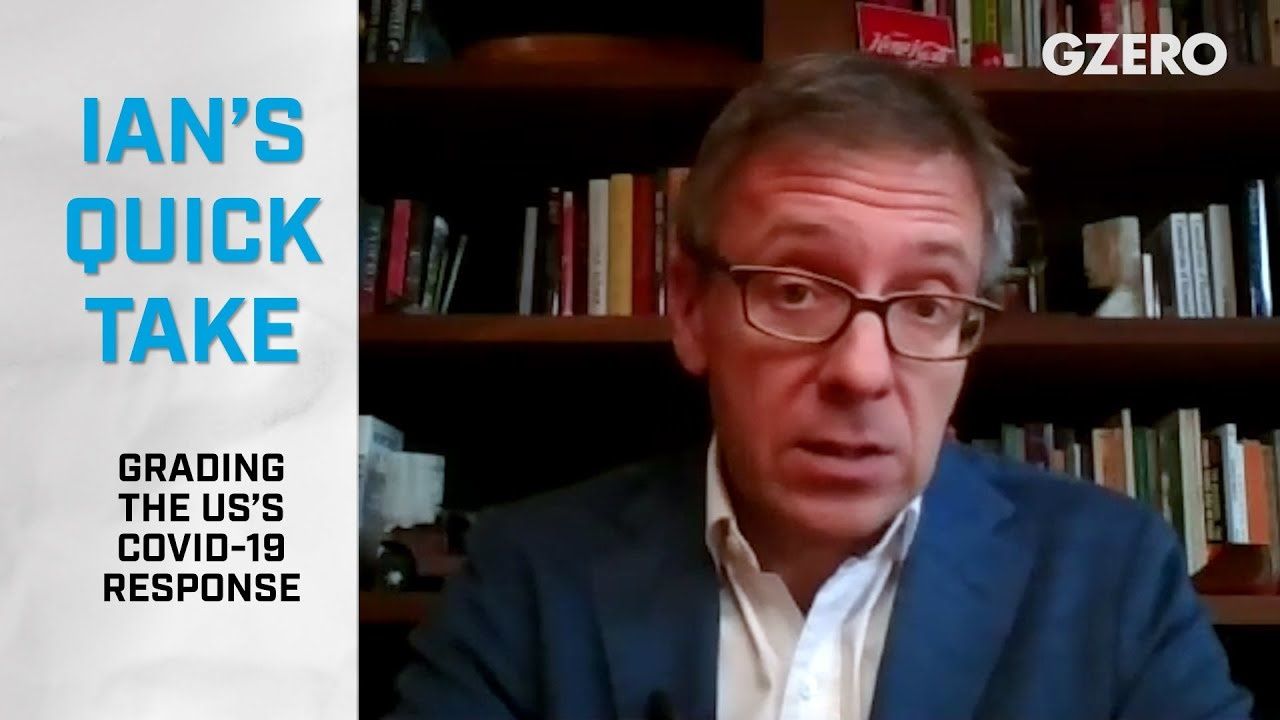
How is the United States doing so far? We're not the best; we're far from the worst. Overall, about average.
To understand how countries are responding to COVID-19, look at the whole government: federal, state, local. Is the government working effectively with the private sector? Look at the healthcare response; fiscal; monetary. Ensure that the virus is contained and people are treated. Make sure the economy continues to function. Finally, are people listening. Given a strong government response, people aren't paying attention, it gets worse. You need alignment & compliance.
The US response on the healthcare side has been late and comparatively ineffective. US already underinvested in healthcare infrastructure, particularly Red States and rural areas with under-served populations. Lack of testing, wasted time, inability to understand the level of spread - real potential of healthcare systems in the US to get overwhelmed.
When Dr. Fauci suggested 100,000 or 200,000 deaths in the United States - an extraordinary number (context of a normal flu season: about 2-4 times vs last year) - it implies that healthcare systems don't get overwhelmed. It implies 20 to 50 million total cases in the US; people who need ICU treatment get it; they have personnel to provide ICU treatment. That may not happen in New York, New Orleans. Compared to most developed countries, the US healthcare response has been substandard.
The private sector response has been strong, ensuring active efforts to develop a vaccine, drugs, to get testing up to speed quickly. The American corporates have done better than the European corporates.
On the monetary and fiscal side, the US has outperformed the scale, scope, and immediacy of the bipartisan 2008-2009 response. Also well-beyond Europe, Japan or South Korea. It's necessary - shutdown of global supply and demand will last at least 3 months. That's a big deal.
All together the Americans are responding slightly better than average. It's not Italy on the bad side, not Germany on the good side. Not South Korea on the good side. Closer to France, the United Kingdom. The UK was late in talking about shutdowns, lockdowns and social distancing. Put the US in context of other rich states.
Put the US in the context of poorer states, which can't afford economic shutdowns like the wealthy world. They can't physically social distance because the average citizen doesn't have space to keep other people distant. The governments don't have the healthcare system to take care of those who will need treatment. The good news: most emerging markets have had comparatively limited explosions of cases so far. In part because they don't have the same level of globalization, people transiting from all over the world, China, Europe, the US. One of the reasons for limited African cases is because they're comparatively deglobalized. But they're not testing much. The exponential rise of cases will be on the same path as the US and in Europe. Turkey, Brazil, Mexico.
International support for those countries isn't there. 3 weeks ago, we got $50 billion in support from the IMF for emergency funding, expecting 3-5 countries to ask for it. It was 81 countries, as of this weekend. Expecting 100+ this week. The money won't be enough. They'll need 10% of GDP in fiscal relief. It's not going to come domestically. It's probably not coming internationally.
Criticize the US response for lack of international leadership. The US has done virtually nothing. No coordination with other countries in data, responsive communications. No good advance information to allies. No good coordination with China. Historically, in major crises, the US takes a leadership role, not always in a productive way. After 9/11, the Wars in Afghanistan and Iraq - money spent, human consequences, failed wars. But the Americans took a leadership role. 08-09, as well. Today, complete absence of American leadership internationally. That's where the Americans fail.
The response from the US has been slightly better than average. If you focus on Trump, the response has been lousy.